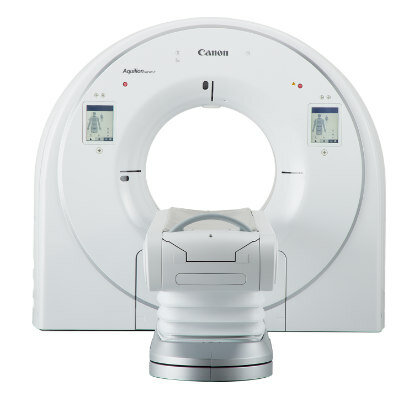Artificial Intelligence Medical Imaging to Determine Which Rectal Cancer Patients Need Surgery
|
By MedImaging International staff writers Posted on 06 Dec 2021 |

Researchers plan to test artificial intelligence (AI) medical imaging to determine which rectal cancer patients need surgery - or can avoid it.
Building on its successes in applying AI to medical imaging to enhance treatment of other diseases, a research team, led by Case Western Reserve University (Cleveland, OH, USA), will test its approach with rectal cancer patients. Specifically, the researchers hope to provide reliable guidance regarding whether patients need to have surgery as part of their treatment.
Currently, clinicians do not have a reliable way to predict which rectal cancer patients would respond favorably to treatments such as chemotherapy or radiation, so most patients have to undergo invasive surgery to remove the rectum and surrounding tissue. Previous research has reported that up to 30% of people diagnosed with rectal cancer have surgery they didn’t need, and often experience effects that hamper the daily life of the patient post the surgery. Those effects can include the need for a colostomy bag, even if temporary, and possible changes in everything from sexual function and infection to mental health, according to previous research.
In the new study, the researchers will work from imaging data from more than 2,000 rectal cancer patients who had been treated at hospitals over the last five years, and test their AI on about 450 to 500 patients. They will tetrospectively test their radiomics to determine if it could have shown which patients would benefit from chemoradiation therapy and which wouldn’t, requiring the surgery. Radiomics refers to the growing number of AI-driven methods to extract a large number of features from medical images using data-characterization algorithms. The features can then help uncover tumors and other characteristics usually invisible to the naked eye. Throughout this project, the research team will design and validate new types of radiomic tools to capture aspects of rectal tumors related to chemoradiation response. The team has already made significant strides in using the tools to predict treatment response to rectal cancer.
“In too many cases, patients are being overtreated,” said lead researcher Satish Viswanath, an assistant professor of biomedical engineering who is leading the work as a member of the Center for Computational Imaging and Personalized Diagnostics (CCIPD). “Instead, if our AI technology is successful, we could tell the clinician right up front—based on a routine MRI (magnetic resonance imaging) scan—if a patient will do well with only chemoradiation and then can be observed, without having this serious surgery.”
Related Links:
Case Western Reserve University
Latest Surgical Techniques News
Channels
Radiography
view channel
Novel Breast Imaging System Proves As Effective As Mammography
Breast cancer remains the most frequently diagnosed cancer among women. It is projected that one in eight women will be diagnosed with breast cancer during her lifetime, and one in 42 women who turn 50... Read more
AI Assistance Improves Breast-Cancer Screening by Reducing False Positives
Radiologists typically detect one case of cancer for every 200 mammograms reviewed. However, these evaluations often result in false positives, leading to unnecessary patient recalls for additional testing,... Read moreMRI
view channel
Low-Cost Whole-Body MRI Device Combined with AI Generates High-Quality Results
Magnetic Resonance Imaging (MRI) has significantly transformed healthcare, providing a noninvasive, radiation-free method for detailed imaging. It is especially promising for the future of medical diagnosis... Read more
World's First Whole-Body Ultra-High Field MRI Officially Comes To Market
The world's first whole-body ultra-high field (UHF) MRI has officially come to market, marking a remarkable advancement in diagnostic radiology. United Imaging (Shanghai, China) has secured clearance from the U.... Read moreUltrasound
view channel.jpg)
Diagnostic System Automatically Analyzes TTE Images to Identify Congenital Heart Disease
Congenital heart disease (CHD) is one of the most prevalent congenital anomalies worldwide, presenting substantial health and financial challenges for affected patients. Early detection and treatment of... Read more
Super-Resolution Imaging Technique Could Improve Evaluation of Cardiac Conditions
The heart depends on efficient blood circulation to pump blood throughout the body, delivering oxygen to tissues and removing carbon dioxide and waste. Yet, when heart vessels are damaged, it can disrupt... Read more
First AI-Powered POC Ultrasound Diagnostic Solution Helps Prioritize Cases Based On Severity
Ultrasound scans are essential for identifying and diagnosing various medical conditions, but often, patients must wait weeks or months for results due to a shortage of qualified medical professionals... Read moreNuclear Medicine
view channel
New PET Biomarker Predicts Success of Immune Checkpoint Blockade Therapy
Immunotherapies, such as immune checkpoint blockade (ICB), have shown promising clinical results in treating melanoma, non-small cell lung cancer, and other tumor types. However, the effectiveness of these... Read moreNew PET Agent Rapidly and Accurately Visualizes Lesions in Clear Cell Renal Cell Carcinoma Patients
Clear cell renal cell cancer (ccRCC) represents 70-80% of renal cell carcinoma cases. While localized disease can be effectively treated with surgery and ablative therapies, one-third of patients either... Read more
New Imaging Technique Monitors Inflammation Disorders without Radiation Exposure
Imaging inflammation using traditional radiological techniques presents significant challenges, including radiation exposure, poor image quality, high costs, and invasive procedures. Now, new contrast... Read more
New SPECT/CT Technique Could Change Imaging Practices and Increase Patient Access
The development of lead-212 (212Pb)-PSMA–based targeted alpha therapy (TAT) is garnering significant interest in treating patients with metastatic castration-resistant prostate cancer. The imaging of 212Pb,... Read moreGeneral/Advanced Imaging
view channelBone Density Test Uses Existing CT Images to Predict Fractures
Osteoporotic fractures are not only devastating and deadly, especially hip fractures, but also impose significant costs. They rank among the top chronic diseases in terms of disability-adjusted life years... Read more
AI Predicts Cardiac Risk and Mortality from Routine Chest CT Scans
Heart disease remains the leading cause of death and is largely preventable, yet many individuals are unaware of their risk until it becomes severe. Early detection through screening can reveal heart issues,... Read moreImaging IT
view channel
New Google Cloud Medical Imaging Suite Makes Imaging Healthcare Data More Accessible
Medical imaging is a critical tool used to diagnose patients, and there are billions of medical images scanned globally each year. Imaging data accounts for about 90% of all healthcare data1 and, until... Read more
Global AI in Medical Diagnostics Market to Be Driven by Demand for Image Recognition in Radiology
The global artificial intelligence (AI) in medical diagnostics market is expanding with early disease detection being one of its key applications and image recognition becoming a compelling consumer proposition... Read moreIndustry News
view channel
Hologic Acquires UK-Based Breast Surgical Guidance Company Endomagnetics Ltd.
Hologic, Inc. (Marlborough, MA, USA) has entered into a definitive agreement to acquire Endomagnetics Ltd. (Cambridge, UK), a privately held developer of breast cancer surgery technologies, for approximately... Read more
Bayer and Google Partner on New AI Product for Radiologists
Medical imaging data comprises around 90% of all healthcare data, and it is a highly complex and rich clinical data modality and serves as a vital tool for diagnosing patients. Each year, billions of medical... Read more





















